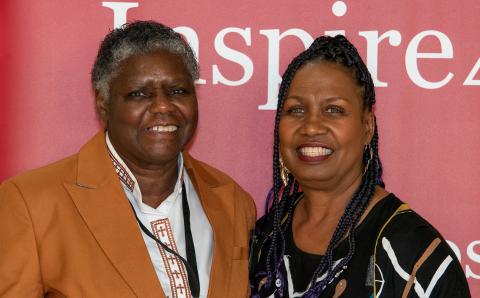One Easter, as the choir sang “Crown Him with Many Crowns,” my mom leaned down to whisper in my ear, “This was one of Grandpa George’s favorites.”
For a moment, I felt close to the grandfather I never met but who prayed faithfully for me before I existed.
In the seasons when I have felt most abandoned by God or disillusioned with the church, hymns have drawn my heart back to Grandpa George and the rest of the cloud of witnesses.
Could hymns be what we need to call back a wandering generation?
It’s often assumed that my generation wants contemporary music. Perhaps this is because our advent coincided with the birth of the contemporary Christian music industry, when, as Andy Crouch says, “a group of Christian rock musicians … broke free from ‘church music’ and began to pour the Christian message into the culture’s new musical wineskins.”
Relevance is a top priority for many churches. They fear traditional church music is too foreign for the young seeker.
In my more cynical moments, I wonder if this “seeker” is an imaginative invention of people who are concerned by the mass exodus of young adults from the church but too well insulated by their Christian bubble to have met the people they hope to attract. In a world that sees the church floundering in its attempt to engage important questions around racism and LGBT issues, whose principal concern is whether drums or an organ take center stage?
In my more honest moments, I recall that I picked my church largely because we sing hymns. Worship is how I evaluate what a congregation believes. Some theology is stated overtly in the lyrics; some is implied.
I recently attended a service of lament. Yet the worship consisted of extensively repeated choruses of general adoration and individual devotion. Where was the anger? Where was the grief?
Laments hinge on faith in a real and relational God. Laments are specific because God is tangibly active. Laments are audacious because God draws near to the brokenhearted. A “lament” of vague praise is not a lament at all because it is missing the conversational elements that show a belief in a God who sees and cares and acts in deliberate, observable ways.
Hymns call us to confront the hard, the real, and the raw. Some versions of the hymn “Man of Sorrows—What a Name” describes humanity as “guilty, vile, and helpless.” Many hymns don’t shy away from the bald wretchedness of our sin. Contemporary songs often cloak it in the metaphor of a storm or focus entirely on the singer’s present wholehearted devotion, side-stepping in a single bound the gravity of sin and the necessity of Christ’s sacrifice. My generation has been saturated with shallow affirmation, and we can recognize the lie in it. We don’t need more spaces to practice myopia and relentlessly validated individual experiences. We need truth and a genuine, familial community.
The fundamental philosophical flaw in trading hymns for pop anthems dressed up in Christian lingo is that it divides our church family as secular schools and social clubs do: with different offerings for different age groups.
The church will only hold together by the same means any family weathers dispute, tragedy, or change: by a commitment to one another that outlasts pain and perpetually enfolds difference. Hymns teach us this commitment. Their hard truths help us practice embracing what pierces our hearts. They guide us in humble, raw confession. The old words teach us to study rather than scorn what we do not yet understand.
Church music should certainly grow with each generation, but our faith does not change to suit us. It consumes us.
About the Author
Emily Joy Stroble is a graduate of Calvin College, art maker, mocha drinker, and reader of many books. A regular contributor to The Banner and perpetual student of the world, Emily lives in Grand Rapids, Mich.









